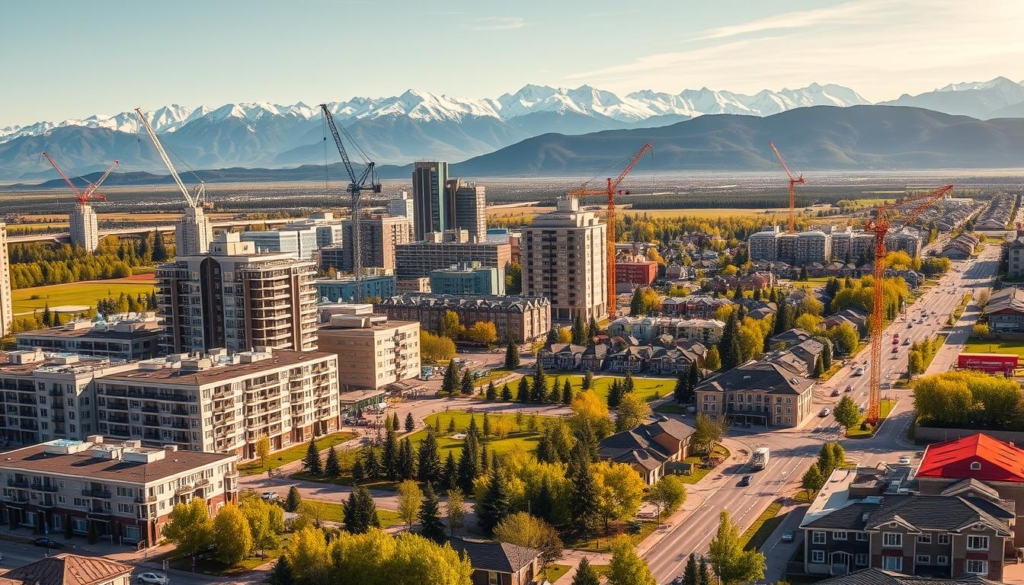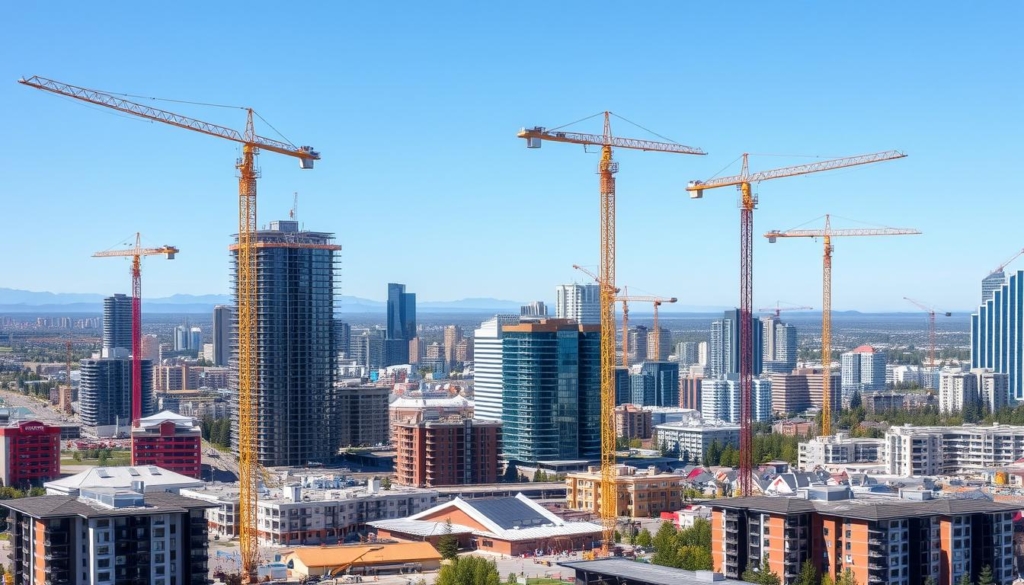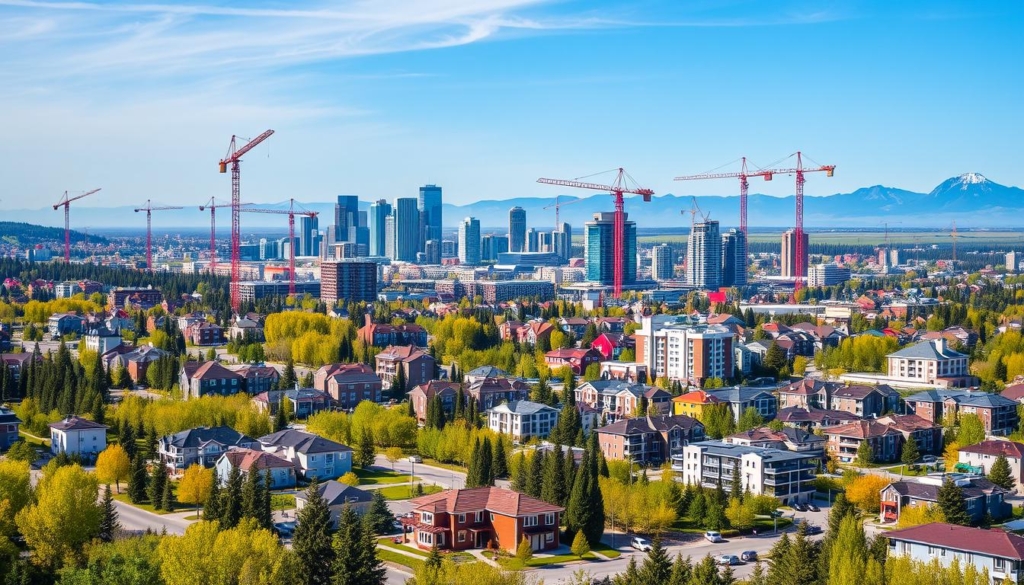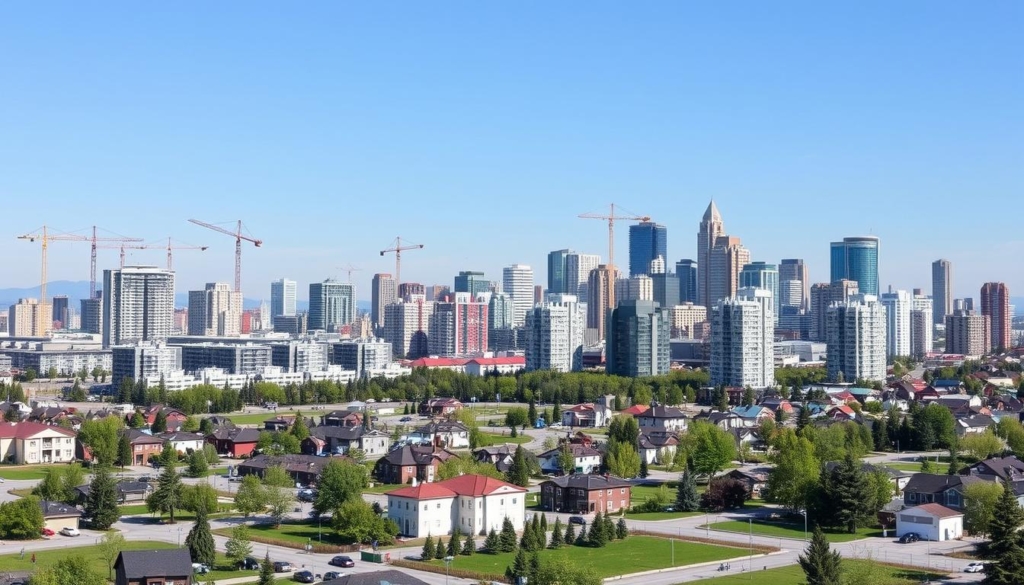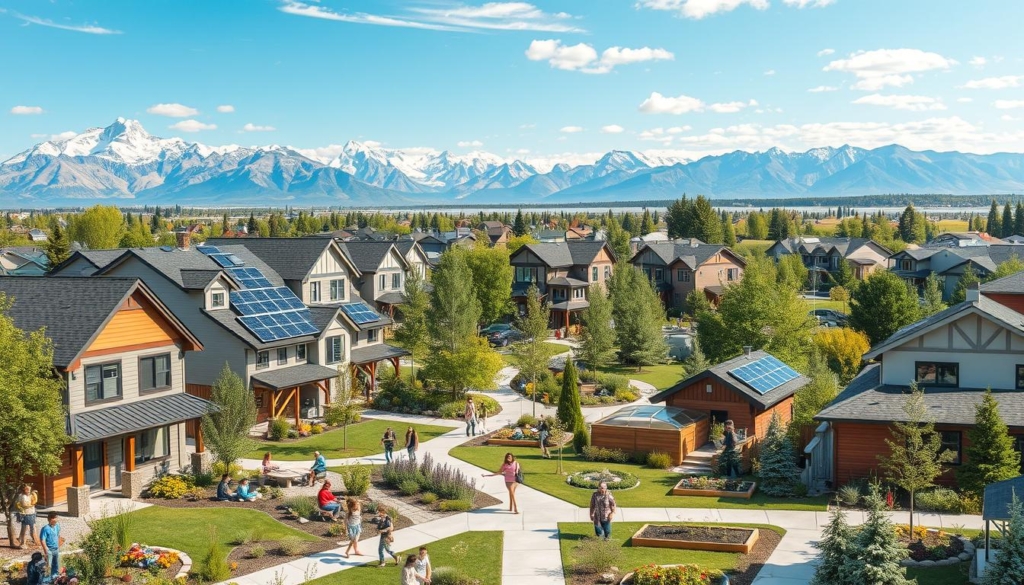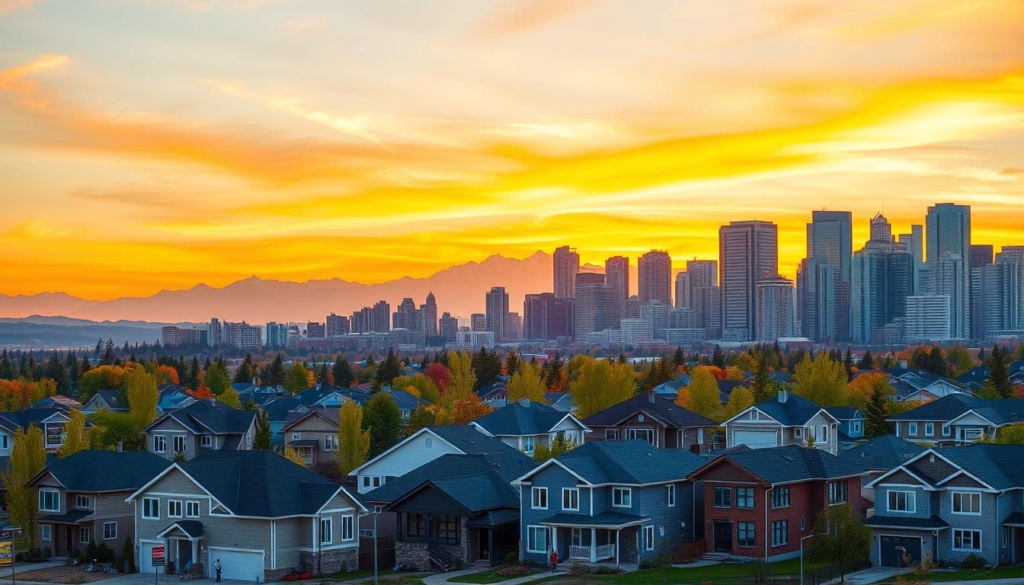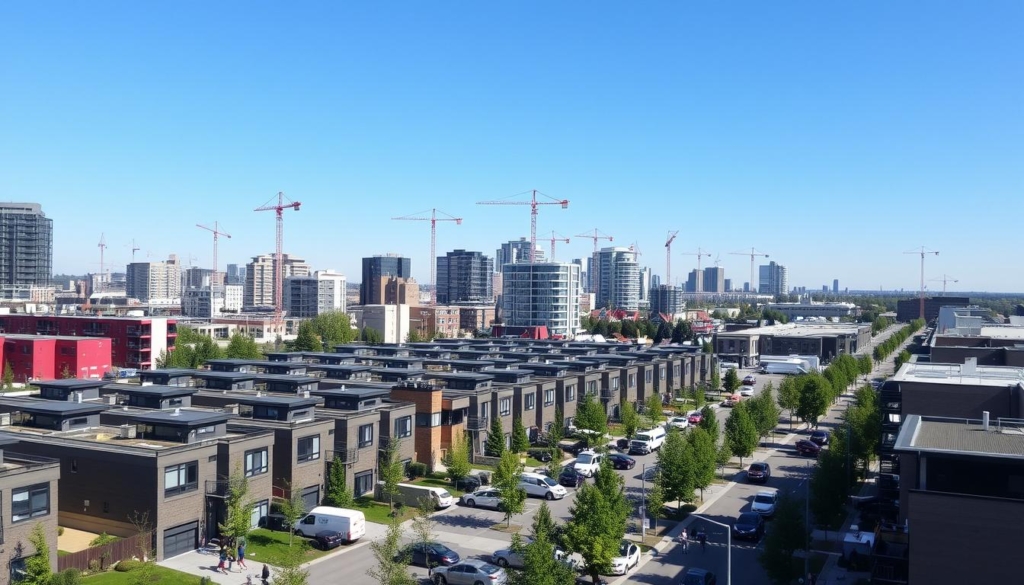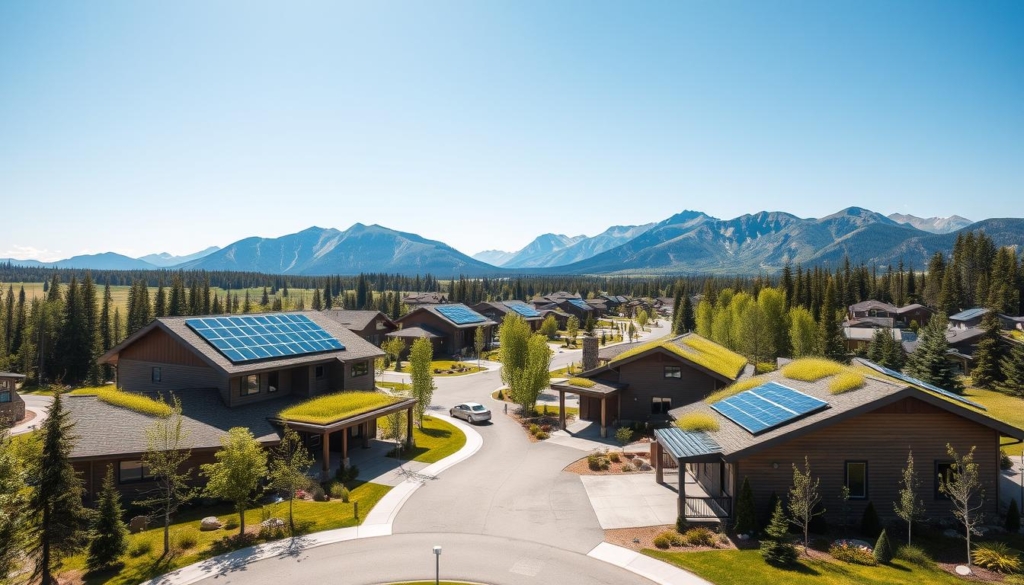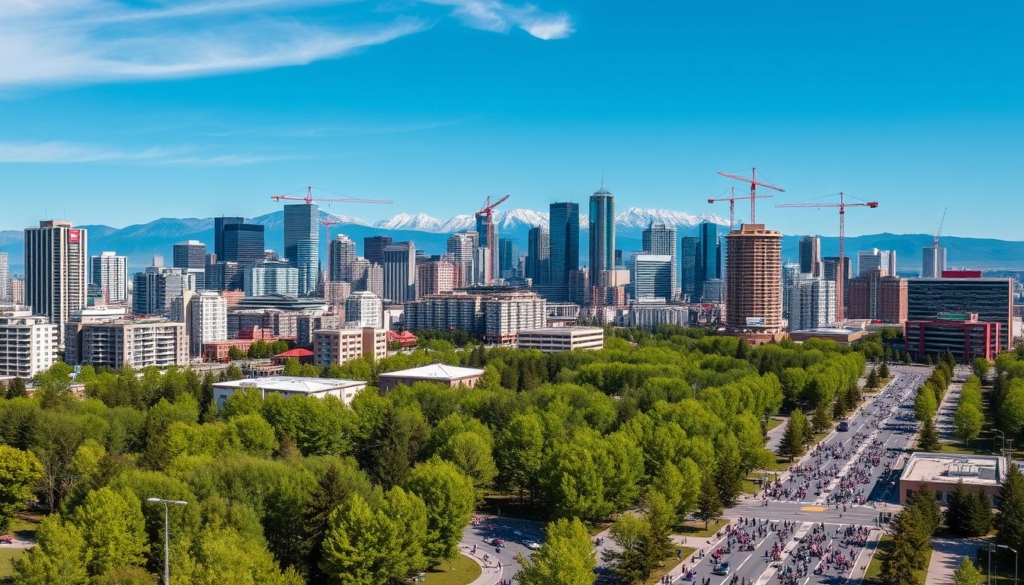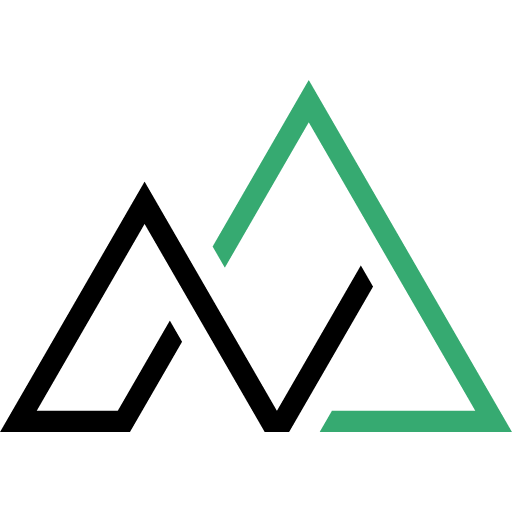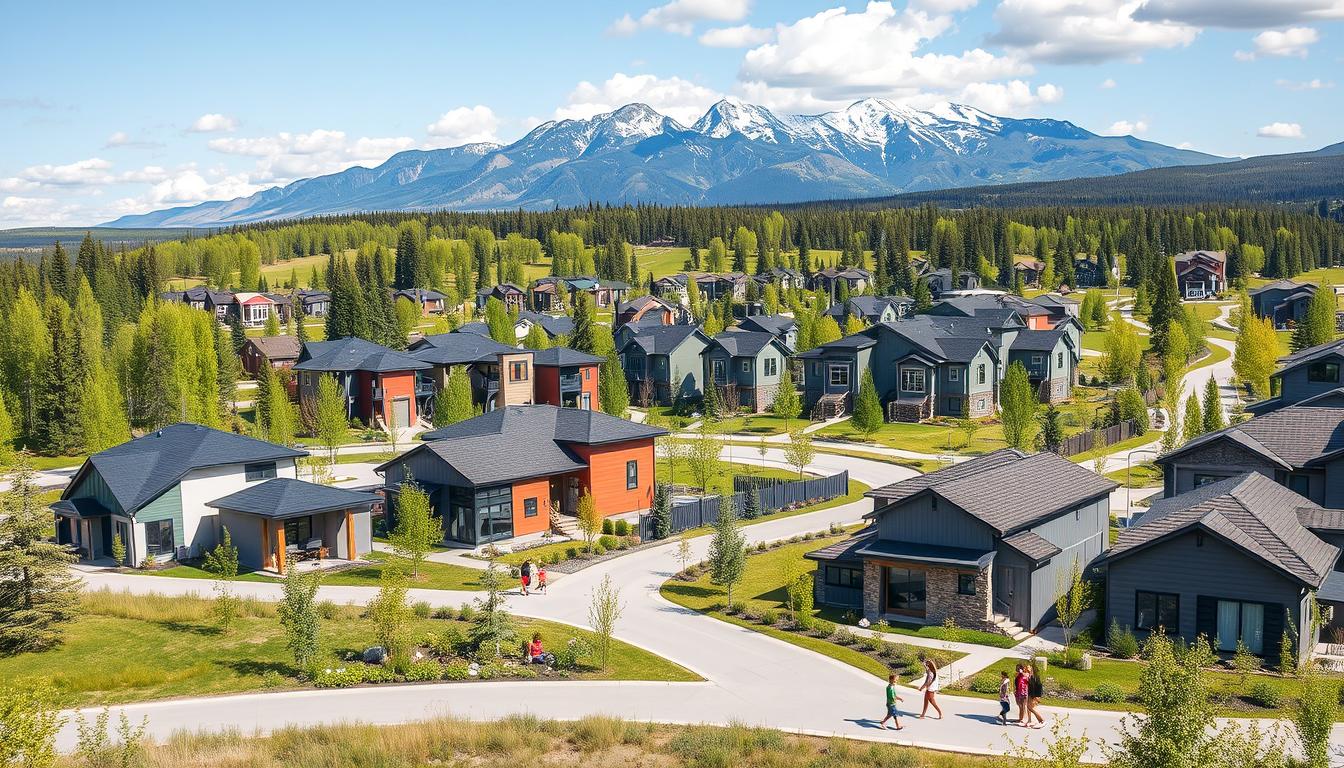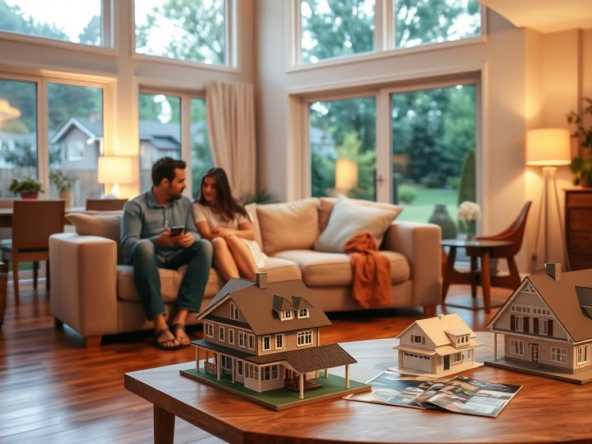Josh Clark
Joshua is a licensed real estate professional who has marketed and help sell some of the biggest developments in the World. From Tortuga Bay in Los Cabo, to Q Towers in Toronto Canada and countless others, Joshua specializes in finding the perfect buyer for new build investments.
Related posts
Navigating the real estate market can feel overwhelming, especially for first-time buyers. This...
by Josh Clark
Purchasing a property is one of the most significant decisions you’ll make. For first-time buyers...
by Josh Clark
Navigating financial metrics can feel overwhelming, especially when evaluating real estate...
by Josh Clark
oregon, new homes for sale, maryland, west virginia, north carolina, new jersey, kentucky, south carolina, delaware, new mexico, long island city, mortgage, nevada, connecticut, illinois, indiana, utah, brooklyn, wyoming, zip code, multiple listing service, rhode island, idaho, kansas, south dakota, real estate agent, pittsburgh, energy, north dakota, new hampshire, iowa, lease, missouri, cincinnati, home buyers, pulte homes, home buyer, renting, interest, louisiana, foreclosure, nebraska, mississippi, indianapolis, arkansas, vermont, condominium, northern virginia, oklahoma, saint vincent and the grenadines, saint kitts and nevis, wisconsin, republic, price, tax, moldova, down payment, cocos, county, british indian ocean territory, falkland islands, south georgia and the south sandwich islands, pultegroup, balcony, property, interest rate, broker, southwest florida, guinea, turks and caicos islands, united arab emirates, estate agent, trinidad and tobago, saint martin, warranty, british virgin islands, email address, papua new guinea, room, wallis and futuna, indian ocean, northern mariana islands, holy see, antigua and barbuda, iraq, new homes near me, new builds near me, new build homes near me, new build homes, new home listings near me, new townhomes near me, newly built homes near me, new houses near me, new subdivisions near me, new houses, newly constructed homes, new home listings, prospect park, construction, staten island, new york city, townhouse, toll brothers, upper east side, elevator, midtown manhattan, floor, architecture, harlem, web browser, coldwell banker, consumer, bedroom, skyline tower, the bronx, queens, option, calgary, new homes calgary, postal code, alberta, duplex, chestermere, rocky view county, bungalow, okotoks, new construction homes calgary, new houses in calgary, new build homes calgary, new housing developments calgary, new homes in calgary canada, new homes calgary alberta, calgary homebuilders, house sale nw calgary
Are new homes being built?
Yes, new homes are being built in Alberta. With a variety of pre construction projects in Calgary and Edmonton, buyers have a range of options from condos to detached homes. In Calgary, projects like Autumn at University District and The Kenten offer new homes for interested buyers, while Glenridding Ravine Townhomes and Fireside Duplex in Cochrane are some of the projects in Edmonton. Prospective homeowners can explore these options for new builds in Alberta.
Are there smaller homes new for sale in Dripping Springs?
Yes, there are smaller new homes for sale in Dripping Springs. These homes offer a range of amenities and features suited for different needs. Contact us for more information on available properties in Dripping Springs.
Do new home construction costs come down?
New home construction costs can fluctuate due to market conditions, materials, and labor costs. However, with advancements in construction techniques and technology, there may be opportunities for cost savings over time. Adapting to market changes and innovations could potentially lead to reductions in new home construction costs.
Are new home prices falling?
New home prices in the region are showing a slight decrease recently, with some properties offering good value for buyers. It's a great time to explore the market for potential savings and investment opportunities.
Do new home builders offer incentives?
New home builders often offer incentives like price discounts, upgrades, or closing cost assistance to attract buyers and boost sales. These incentives can vary based on the builder and the specific development, so it's advisable to inquire directly with the builder to learn about current offers for new home purchases.
Are new construction home prices negotiable?
In general, new construction home prices may be negotiable, but the extent of negotiability can vary depending on market conditions, the builder's policies, and other factors. It's advisable to work with a real estate agent who can help navigate negotiations for the best possible outcome.
Can you negotiate sale price on new construction homes?
Negotiating sale prices on new construction homes can be possible, depending on the builder's policies and market conditions. Some builders may be open to negotiation, while others may have set prices. It's essential to inquire about negotiation options and work with a real estate agent to navigate the process effectively.
Are new homes still being built?
Yes, new homes are still being built in Calgary. Various preconstruction projects offer condos, townhomes, and detached homes with move-in dates ranging from 2024 to 2026. These projects cater to different budgets and offer a range of amenities, making new home buying options available for interested buyers.
Are new home sales slowing down?
New home sales may be showing signs of a slowdown, with data indicating a shift in demand. Various factors such as market trends, economic conditions, and supply levels contribute to fluctuations in sales activity. Monitoring these indicators is crucial for understanding the current state of new home sales.
How many new homes were built in Calgary?
There is no specific number provided for how many new homes were built in Calgary in the given content. The content focuses on the availability and details of various new homes, but it does not give an exact count for the total number of homes built in Calgary.
Do new homes appreciate faster?
New homes typically appreciate faster due to modern features, energy efficiency, and location attractiveness. However, factors like market conditions and maintenance also impact appreciation rates.
Are new developments a good investment?
While investing in new developments can offer potential benefits like modern amenities and customization, one must carefully consider market conditions, location, and long-term value to determine if it's a good investment. Conduct thorough research and consult with real estate professionals before making a decision.
Can new homes have wood-burning fireplaces?
Some new homes can have wood-burning fireplaces, but it depends on local building codes, environmental regulations, and the preference of the homebuyer or builder. It's essential to check with the specific builder or developer to see if wood-burning fireplaces are an option in their new homes.
How do real estate developers finance new construction homes?
Real estate developers typically finance new construction homes through a combination of equity, loans, and pre-sales. They invest their own money (equity) into the project and secure construction loans from lenders. Developers may also sell pre-construction homes to buyers, using those funds to cover construction costs.
Are new home prices going down?
In the current market, new home prices are relatively stable and not showing a significant downward trend. Buyers seeking new homes may need to consider this factor when making purchasing decisions.
How are new homes marketed in Calgary?
New homes in Calgary are marketed through various channels, including online listings, real estate websites, social media platforms, and real estate agents. Developers use digital advertising, property tours, and incentives like VIP access to draw potential buyers. These marketing strategies help showcase the features and benefits of new homes to attract interested parties.
Are energy-efficient features common in new homes?
Energy-efficient features are increasingly common in new homes, adding sustainability and cost savings. Technology like solar panels, efficient insulation, and smart home systems are prevalent, aligning with eco-conscious demands and modern preferences for energy-conscious living.
What are the latest trends in new home design?
Sleek kitchen designs with efficient layouts, spa-like bathrooms, and open-concept living spaces are trending in new home design. Home automation for convenience, sustainable materials for eco-friendliness, and incorporation of outdoor living areas for seamless indoor-outdoor flow are also in demand.
How does the new home buying process work?
In the new home buying process, buyers can search for properties by price, amenities, or features. They can view project details, access VIP incentives, and contact agents for more information. Preconstruction homes offer various move-in dates, giving buyers options to plan their investment.
Is landscaping included with new Calgary home purchases?
Landscaping inclusion varies by developer for new Calgary homes. Buyers should inquire about landscaping details directly with the builder or in the purchase agreement.QtCore.
What warranties come with a newly constructed home?
Newly constructed homes typically come with warranties such as a structural warranty, which covers the foundation, load-bearing walls, and framework; a workmanship warranty for up to a year on labor and materials; and warranty provisions for major systems like plumbing, electrical, and HVAC varying between one to ten years.
Do Calgary builders provide customization options for homes?
Calgary builders typically offer customization options for homes, allowing buyers to tailor aspects like finishes, layout adjustments, and sometimes even floor plans to suit their preferences. It's common for builders to work closely with buyers during the pre-construction phase to accommodate customization requests within the development guidelines.
What are Calgarys most popular new home communities?
Calgary's most popular new home communities include Seton, Silverton, Belmont, and Eau Claire. These areas feature a range of new construction projects, including townhomes, duplexes, and detached homes. With numerous options and incentives available, these communities are top choices for homebuyers seeking new homes in Calgary.
How long does it take to build a new home?
The timeline to build a new home varies depending on the size, complexity, location, and other factors. On average, constructing a new home can take anywhere from three months to a year. Factors such as permitting, weather conditions, and design changes can impact the timeline.
Can buyers visit new homes under construction?
Buyers generally can visit new homes under construction, but it's wise to check with the builder or developer beforehand to ensure safety and access. Site visits offer insights into the progress and quality of the construction before completion.
Are smart home features standard in new homes?
In new homes, smart home features are becoming increasingly standard due to evolving technology and consumer demand. Builders often include amenities like smart thermostats, lighting, security systems, and appliances to attract buyers looking for modern conveniences and energy efficiency.
What are the property tax rates for new homes?
Property tax rates for new homes vary based on the location and property value. It is advisable to check with the local tax authority or the municipality where the new home is located to determine the specific property tax rates applicable. These rates can differ significantly between areas and may be subject to change annually.
Do new homes come with appliances included?
In general, new homes typically do not come with appliances included. However, some builders may offer appliance packages or incentives, so it's essential to check with the specific builder for details on what is included in the new home purchase. Always verify with the builder or sales representative for accurate information regarding appliances in new homes.
Are there eco-friendly new homes in Calgary?
Yes, there are eco-friendly new homes in Calgary. These homes are built using sustainable materials, energy-efficient systems, and environmentally friendly practices to reduce their impact on the environment. Developers in Calgary are increasingly incorporating green building techniques and features into new home construction to meet the growing demand for eco-friendly housing options in the city.
How do interest rates affect new home sales?
Interest rates directly impact new home sales by influencing affordability. When interest rates are low, buying becomes cheaper, increasing demand for new homes. Conversely, high-interest rates can deter buyers due to higher mortgage costs, potentially slowing new home sales. Factors like the economy and lending policies further shape this relationship.
calgary new home construction, preconstruction homes near me, new home in calgary, brand new homes for sale, pre construction homes edmonton, new homes calgary, new build homes airdrie, new home for sale calgary, new home construction canada, new homes build, cochrane alberta new homes, pre construction townhomes edmonton, calgary canada brand new house for sale, homes alberta, homes for sale alberta canada, new developments edmonton, new homes for sale calgary alberta, alberta canada houses, new build homes edmonton, building new communities, new houses for sale, new homes built near me, house in alberta, new constructions near me, new detached homes, new developments calgary, builders of new homes, calgary new construction homes for sale, brand new house, joshua clark, house to move alberta, brand new house for sale in calgary, new home developments, pre construction homes for sale, logel homes silverton, new house developments calgary, new house listing, new build homes, home developments near me, new preconstruction homes, buying a house in alberta, lease hoses alberta, buy new homes edmonton, alberta home, new homes for sale, new homes for sale by builder, new community homes for sale, pre construction lakewood, new built homes for sale, new homes for sales, mobile homes for sale edmonton to be moved, calgary new homes, new homes in seton calgary, new home ca, calgary pre construction homes 2026, new homes guide, newly built houses near me, calgary new construction, new community homes, homes for sale in alberta canada, schools for sale alberta, new homes alberta, new homes for sale in edmonton, new houses in edmonton, new houses built, homes for sale new, newly developed houses for sale, new home home, single family homes new construction, buy new house calgary, new housing estates near me, new construction houses for sale, new build properties, brand new build, construction in alberta, model homes near me, new townhouse construction, housing in alberta canada, new construction homes, legal homes for sale, new homes prices in canada, new home construction near me, new houses edmonton, new build homes cochrane alberta, preconstruction homes calgary, new build homes near me, new development calgary, new property, houses for sale in alberta canada, brand new homes calgary, new builds for sale, homes in alberta canada, edmonton preconstruction, calgary new build townhouse, pre construction houses in edmonton, new home for sale near me, new homes and builders, property in alberta canada, new builds cochrane, edmonton pre construction homes, new estate homes calgary, new property developments, calgary new house, new build homes to buy, preconstruction projects, new homes cochrane alberta, new houses for sale in cochrane alberta, new house on sale, for sale new houses, new homes for sale in alberta, houses to be moved in alberta, new homes for sale near me, calgary pre construction homes 2025, new home builds calgary, new homes construction, new subdivision, new starter homes, dream mansions for sale, calgary pre construction homes 2024, new houses in edmonton alberta, pre construction mobile, edmonton new homes, pre construction condos edmonton, new houses in canada, new home listing, newly built house for sale, alberta canada homes, new homes in airdrie alberta, alberta house to be moved, homes in alberta, find new houses for sale, new build home developers, new residential communities, new developments in edmonton, new house, pre construction homes calgary, new home construction, new construction homes calgary se, building new houses, pre construction houses for sale, pre construction homes alberta, new estate developments, new construction communities, pre construction edmonton, pre construction duplex calgary, new developments near me, new construction homes in calgary, new detached homes in edmonton, new build properties near me, new house calgary, build new homes, new build townhomes airdrie, new build calgary, new homes sale, new construction edmonton, home for sale in alberta, new houses being built, new houses in calgary, houses new build, new construction condos for sale in edmonton, homes in alberta for sale, new build show homes near me, new builds in calgary, for sale by builder, alberta construction projects, new pre construction homes, new housing communities, brand new homes for sale edmonton, calgary pre construction detached homes, new housing near me, new construction homes for sale in calgary, new homes on, 3 bedroom new construction, houses in alberta canada for sale, new homes airdrie, new homes in edmonton, new build bungalows calgary, new builders near me, new homes development, new home sale, new construction alberta, new homes nw calgary, house new development, house for sale alberta, new homes for 400k, house for sale new homes, home new construction, new houses calgary, new home developments airdrie, king city new homes, new home community, nee homes, new homes edmonton, new home sales, new built homes calgary, new houses for sale in calgary, new builders calgary, new construction home, new homes for sale in edmonton alberta, homes in alberta canada for sale, calgary new developments, brand new home for sale, brand new homes edmonton, new build townhomes calgary, new housing developments calgary, alberta canada real estate, alberta canada houses for sale, new build home developments, investment properties for sale calgary, new construction homes for sale edmonton, new home projects, newhomes, new houses on the market, new homes in canada, pre construction in edmonton, new townhouse calgary, newly built homes, new construction houses, new home calgary, homes at, new home for sale in edmonton, new home builders in, new pre construction homes in calgary, new home builds in calgary, buy new house in calgary, alberta home for sale, move-in now homes, new house for sale in calgary, cheapest houses in alberta, calgary new home for sale, new home build, alberta real estate market, new house edmonton, houses in canada alberta, new construction calgary, new single family homes for sale, new homes edmonton alberta, buy house in alberta canada, new homes on sale, new houses in calgary for sale, new house development, builder homes for sale, construction homes for sale, new homes edmonton for sale, buy new home in calgary, buy new build house, new home for sale in calgary, new build developments, new houses for sale near me, new builds calgary, new build house, new property for sale, calgary pre construction homes, houses for sale to be moved in alberta, homes for sale new build, new builds by me, new mobile homes for sale in alberta, new homes in airdrie, new build home for sale, range view homes for sale, buy a new home, new houses for sale in calgary alberta, pre construction houses, new homes kensington, houses to move alberta, new builds houses, new home developments in calgary, pre construction homes, buy house in alberta, pre construction homes in edmonton, new home search, new development properties, calgary new build, airdrie new builds, pre construction homes calgary 2025, alberta homes for sale, new build sale, upcoming housing developments, new homes by builder, new home sales calgary, new constructions for sale, new homes near me, find new build homes, home construction projects, edmonton new developments, new estate homes for sale, new build homes 400k, pre-construction homes, brand new homes for sale in calgary, new homes for sale nw calgary, build new home near me, new housing developments, new housing developments in edmonton, new developments in calgary, brand new construction homes for sale, edmonton new build homes, new homes canada, brand new houses for sale in edmonton, construction properties, new home edmonton, new build show homes for sale, new builds airdrie, new home development calgary, new home builds airdrie, builders for new homes, new build houses for sale, new homes nw calagry, new homes for sale in calgary, housing alberta, pre construction detached homes 2025, new build, new builds for sale near me, brand new houses, new build homes in calgary, for sale new homes, alberta best homes, new build homes for sale, alberta townhouses, edmonton pre construction condos, new home construction calgary, ajo new homes for sale, new home in edmonton, new homes calgary alberta, calgary new build homes for sale, alberta houses, alberta new home, new houses in my area, new build condos edmonton, new build houses, pre-construction homes calgary, edmonton pre construction, new development for sale, new home construction edmonton, new home developments calgary, new home sales edmonton, new home builds, canada new homes, new home construction realtor, building houses for sale, new development, houses for sale in alberta, brand new homes for sale in airdrie, new houses near me, whats the website to see properties sold in alberta, houses for sale new build, new homes cochrane ab, search new homes, buy a new house, new homes close to me, new build townhomes for sale, home to move for sale, new build search, new homes sale calgary, new home development, new homes in cochrane ab, pre construction single family homes, new development houses for sale, find new houses, new condos mobile, built homes for sale, new houses, new build townhomes edmonton, brand new house for sale, new development property for sale, new residential construction, new homes real estate, new build homes in my area, housing development near me, new homes edmonton south, new construction projects in calgary, new home builders in edmonton alberta, houses in alberta for sale, josh clark calgary, pre construction detached homes 2026, edmonton new builds, houses in alberta, renovated homes, new construction homes for sale under 400k, edmonton new construction, new construction homes in edmonton, development homes for sale, new home builders edmonton alberta, new homes mobile, home new home, find new homes for sale, houses for building, alberta pre construction homes, edmonton new housing developments, preconstruction detached homes, new home developments near me, houses for sale new developments, new home sales near me, new home developer, new home builders, houses in alberta canada, new house for sale, calgary new construction projects, seton new homes for sale, pre construction homes for sale in calgary, alberta cottage for sale, pre construction condos in edmonton, new home developments edmonton, houses for sale near university of alberta, nero edmonton, houses alberta, alberta homes, calgary new home, preconstruction homes edmonton, new homes builder calgary, new builds near me, pre build homes designs alberta, new homes near schools, cochrane new developments, newly built houses, already built new homes for sale, new build homes in edmonton, buy new homes, new houses sale, new construction near me, house for sale in canada alberta, brand new houses for sale, calgary new builds, new homes in edmonton alberta, new builds edmonton, new build homes calgary, new homes building, new development in calgary, housing in alberta, new single family homes, brand new homes for sale in edmonton, new homes north edmonton, new house near me, calgary new build homes, house for sale near university of alberta, brand new condos calgary, edmonton new construction projects, new homes lakewood, pre construction home for sale, new homes in calgary canada, preconstruction edmonton, pre construction calgary, new construction, new builds homes, find new home, new subdivisions near me, new build houses airdrie, buy new house in edmonton, pre construction homes in calgary, calgary new homes for sale, new home for sale, investment property for sale calgary, home developments, new build properties for sale, new construction homes edmonton, cottage for sale alberta, new build townhomes, construction new house, brand new house for sale edmonton, showhomes for sale, new construction homes calgary, new built, build a new home in edmonton, new development homes for sale, new homes in alberta, new properties for sale, new build construction, calgary new home developments, new house construction, new homes calgary sw, house in new, real estate cochrane alberta, house to be moved for sale alberta, new subdivisions, house sale in alberta, new construction for sale, new homes directory, new builds in cochrane alberta, pre construction detached homes 2024, new homes cochrane, new home prices, buy house alberta, new homes for sale in edmonton canada, new residential developments near me, new construction condos edmonton, new homes in edmonton alberta for sale, houses to buy in alberta canada, central alberta new home builders, new build estates, newhomesforsale, new homes in cochrane, properties for sale in alberta, house new house, brand new property for sale, new properties, new construction homes for sale calgary, new homes for dale, new hones, houses to be moved for sale alberta, new homes prices, building a house in alberta, new house construction near me, new construction homes for rent, new builds to buy, pre-construction homes in calgary, new house in calgary, for sale alberta, new homes for sale in cochrane alberta, cochrane new construction, new homes with land, townhouse new build, first time homes for sale, new construction listings, house for sale alberta canada, houses for build, new build houses to buy, new house in edmonton, brand new houses for sale in calgary, nw homes, buy new houses, northwest new homes, house in alberta for sale, buy new construction house in cochrane alberta, new housing developments near me for sale, house in construction, sell new homes, new home builders near me, house prices in alberta, zen livingston, new homes near by, alberta properties, new home buy, cheapest homes in alberta, homes to be moved alberta, new homes in calgary for sale, new construction in edmonton, new estate homes, new new house, alberta house prices, buy a house in alberta, new real estate developments, new homes construction for sale, new home deals, new construction homes for sale, preconstruction houses, new homes listings, new homes 200000, new houses on the market for sale, new development house, edmonton real estate stats, nouvelle construction, new house development near me, buy new build homes, how much to build a house in alberta, pre construction house, houses to be moved alberta, new homes in, legal bedroom requirements alberta, new house sale, near new homes for sale, cheapest real estate in alberta, pre construction homes airdrie, newly built townhomes for sale, new build home, pre construction homes calgary ne, new houses fir sale, home for sale alberta, new development near me, new construction homes for sale in sw calgary, renovated house for sale, new homes in calgary, new build housing developments, new homes on the market for sale, new home builds near me, new builds in edmonton, new home for sale edmonton, pre build homes, alberta cottages for sale, new homes developments near me, houses under construction, new housing developments edmonton, homes being built near me, new townhouse builds, dream homes for sale, house for sale to be moved alberta, edmonton new houses for sale, new calgary developments, new development home, buy a house in alberta canada, buy new house edmonton, new homes aidrie, homes for sale new homes, browsehomesoncochrane districtnewest homhomes, pre-construction edmonton, newly house, new development edmonton, new home builders cochrane ab, new homes in 200s, leo listings calgary, new construction in calgary, new build houses near me, brand new houses for sale calgary, new communities in calgary 2025, new.homes near me, builds for sale, build for sale, new house property, new homes for, detached new builds, new house properties, new house build, new community calgary, looking for new home, new builder homes, new construction townhomes, new homes near, new homes for sale calgary, new homes for sale in seton calgary, best new builds, new homes to build, cheap new builds, new homes agent, houses new development, house new build, cheap small homes in rural alberta for sale under 100k, pre sale condos calgary, new homes i, houses for sale under construction, calgary preconstruction homes, new build house for sale, new builds 2025, new home guide, new homes in cochrane alberta, new development houses, homes new construction, new homes northwest calgary, new townhomes construction, new homes for sale edmonton, preconstruction houses for sale, new homes near.me, homes to move alberta, pre construction homes for sale near me, new in homes, property and construction, residential construction, new move-in ready homes, new construction homes near me, new housing, house for sale in alberta, new built house for sale, alberta for sale, cochrane pre construction, new house communities, new build townhouse, new developments, edmonton new construction homes, new homes kitchen, new homes midtown, new construction homes airdrie, new housing builds, new homes sales, new building house, pre construction townhomes 2026, newly built home for sale, newest homes, homes for sale new construction, houses for sale to be moved, new developed houses, newly built townhomes, new homes for sale with land, houses alberta canada, new neighborhoods near me, edmonton new home developments, new houses in calgary sw, new build property for sale, new homes website, new condo builds calgary, houses for sale in canada alberta, new construction home for sale, edmonton new house, pre-construction homes in edmonton, calgary new estate homes, future homes for sale, new dayton alberta, buy new house, renovated house for sale near me, new construction projects in edmonton, new home developments in edmonton, new construction developments, new subdivision near me, new home near me, build homes, edmonton new home, new detached homes for sale, new homes and condos for sale, neighborhood developments near me, the new build, new mobile homes for sale alberta, brand new homes for sale near me, new build detached homes, mobile homes to be moved alberta, new homes edmonton northwest, finished homes, new homes for sale south edmonton, new build developments near me, new residential, new communities in edmonton, new build finder, seton new homes, new homes calgary ne, good home alberta, airdrie new homes for sale, homes for sale in southern alberta, real estate alberta canada, homes for sale in calgary alberta canada, new homes calgary under 400k, house being built near me, alberta home prices, new townhomes near me, new neighborhoods in edmonton, newbuild homes, houses for sale in alberta calgary, new build duplexes for sale edmonton, university heights homes for sale, show homes cochrane alberta, house prices alberta, new home builders nw calgary, new home additions, best new build home builders, calgary new construction homes, mobile homes for sale alberta to be moved, new home communities, new builds homes for sale, house developments near me, new build bungalows for sale calgary, any new construction homes near me, new home ready to move in, browsehomesnbqueens countynewest homhomes, edmonton new homes for sale, houses for sale alberta calgary, new build houses for sale under 400k edmonton, new construction homes for sale in ne calgary, cheap homes in alberta, new detached houses for sale, preconstruction home, whitecone new homes for sale, new houses for sale in my area, house for sale in calgary alberta canada, calgary new home communities, house for sale alberta calgary, new house for sale calgary, brand new houses for sale in calgary nw, houses for sale in southern alberta, new homes hvac airdrie, homes for sale in edmonton alberta canada, new houses for sale edmonton, calgary new homes for sale nw, new houses for sale calgary, houses for sale in edmonton alberta canada, houses for sale southern alberta, calgary alberta homes for sale, houses for sale in calgary alberta canada, new construction duplexes for sale edmonton, house prices alberta canada, cheap houses alberta, southern alberta homes for sale, move in ready houses for sale, new developments for sale, new home development near me, calgary ne new homes for sale, new communities near me, new community homes near me, new houses for sale in edmonton, build a new home, new homes south edmonton, ready to move-in new homes, build homes new, edmonton new home communities, calgary new home listings, calgary housing developments, homes for sale calgary alberta canada, new home builders edmonton area, new edmonton developments, new developments calgary ne, newly built houses for sale, new houses for sale in airdrie, new homes for sale cochrane alberta, new construction home companies, new house sale in calgary, single family home construction, new homes built, new houses for sale in calgary nw, new homes hvac cochrane, new construction townhomes near me, new townhouse construction near me, new calgary homes, browsehomesnbalbert countynewest homhomes, building new homes, new house builds, home construction near me, new homes in king city, cheapest housing in alberta, brand new home for sale near me, new construction homes for sale west-island, new home builder central alberta, airdrie new homes quick possession, sw alberta real estate, new homes for sale in edmonton south, new build edmonton, cheap houses for sale in southern alberta, new property developments near me, show homes for sale, new house near me for sale, house for sale in alberta calgary, new construction homes being built near me, residential construction near me, new houses for sale in edmonton south, cochrane new homes for sale, buying a new build home, new house for sale near me, new houses for sale edmonton south, airdrie new houses for sale, homes for sale in alberta, housing developments, new housing developments near me, houses under construction for sale, homes for sale new construction near me, new built house near me, new single family home construction near me, new communities edmonton, cost of building a house in alberta, cost to build a house in alberta, new homes calgary nw, how to buy a house in alberta, construction homes near me, new homes construction near me, home for sale in edmonton alberta canada, brand new house for sale in calgary nw, new homes sale near me, calgary new homes for sale sw, homes under construction for sale, cheapest place to buy a house in alberta, housing subdivisions near me, new residential construction near me, buy new home, house to be moved alberta, new home buildersnear me, new single family homes calgary, new communities, home for sale in alberta canada, calgary new house for sale, alberta houses for sale, new houses for sale in calgary ne, belmont homes for sale, houses for sale in airdrie, major homes for sale, new house project near me, pre built homes alberta, calgary ab homes for sale, new homes in nw calgary, new house developments, brand new homes for sale in calgary ne, new subdivisions being built, new housing projects near me, new builds around me, new single homes, builder new homes, housing developments near me, house prices in alberta canada, new houses for sale in calgary sw, cottages for sale in alberta, seton home builders, calgary new homes for sale ne, new build contractor, affordable new homes, builders homes for sale, new housing developments airdrie, airdrie new home builders, homes for sale alberta, new house for sale edmonton, new homes for sale calgary nw, new developments calgary nw, new homes, sw home buyers, homes for sale in university heights, pre construction homes near me, mobile homes for sale in alberta, new homes hvac calgary, newly built homes for sale, new construction home builders, home development, how to find new homes being built, renovated homes for sale edmonton, preconstruction homes for sale, buying a home in alberta, show homes in cochrane alberta, house price in alberta, new home builder, houses for sale alberta, preconstruction real estate sale and marketing platform, house under construction, lots for sale in alberta, sells new homes for sale, new house builders near me, new bungalows for sale in calgary, mansions in alberta, alberta new homes, move in ready homes for sale, homes for sale in legal alberta, developer homes, new build construction near me, new home building, investment opportunities near me, houses for sale in edmonton alberta, new homes for sale calgary sw, new homes for sale airdrie, browsehomesnsqueens countynewest homhomes, new custom homes near me, new calgary homes for sale, mobile homes for sale in calgary, under construction homes, detached homes for sale, mobile homes for sale alberta, new builds houses near me, new build homes for sale near me, standard homes for sale, how to buy a new build house, new edmonton homes, new homes for sale in okotoks alberta, rural alberta homes for sale, opportunity no 17 real estate, rent to own homes in calgary and edmonton alberta, mls calgary new listings, detached homes for sale in calgary, homes to buy in calgary, new communities in calgary nw, investment property for sale near me, investment homes for sale, mansions in calgary alberta, small homes in rural alberta for sale, new edmonton houses for sale under 400k, new home listing calgary, homes for sale in edmonton alberta, sold list house alberta, brand new houses for sale edmonton, mls listings alberta, cheap houses for sale in calgary, homes to buy in edmonton, calgary new home builders, new home listings calgary, new home builders calgary, detached homes for sale calgary, new townhouse developments calgary nw, edmonton alberta homes for sale, alberta calgary houses for sale, ready to move construction, new houses airdrie, brand new duplex for sale calgary, southern alberta real estate, homes for sale in canada alberta, brand new house for sale in calgary ne, new build sites near me, constructions sites near me, buy new townhouse, buzz buzz homes, calgary alberta canada houses for sale, new home.developments near me, cheap houses for sale in cochrane
